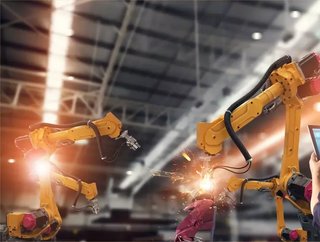Veo Robotics dubbed a tech pioneer by World Economic Forum

Veo Robotics, an industrial robot manufacturer based in Waltham, Massachusetts, has received significant praise from the World Economic Forum.
Considering technological innovation to be of critical importance to the welfare of society and the global economy, the WEF annually celebrates the companies it considers to be exemplars - called ‘Technology Pioneers’.
The short-list of winners are all nascent or developing enterprises which have the capacity to make a significant contribution to business and society generally.
Consequently, Veo Robotics’ CEO and co-founder Patrick Sobalvarro will be invited to participate in WEF events and discussions throughout the year. The company will also have the opportunity to inform the WEF’s policy and global agenda on important issues.
"We're excited to welcome Veo Robotics to our 20th cohort of Technology Pioneers," said Susan Nesbitt, Head of the Global Innovators community at the WEF.
"Veo Robotics and its fellow pioneers are developing cutting edge technologies all over the world. Beyond their innovations, these firms are contributing greatly to improving the state of the world."
Changing manufacturing
Founded in 2016, Veo Robotics’ revolutionary approach utilises advanced computer vision and 3D sensing capabilities to create a unique new method for manufacturing.
Currently partnered with four robotics and automation companies - FANUC, Yaskawa, ABB, and Kuka - Veo has so far managed to raise USD$28mn in venture capital funding. Other investors include Google Ventures, Siemens Next47 and the SBI AI & Blockchain Fund.
Capable of sensing and responding proactively to their environment, the company’s machines can operate in dynamic areas containing many people in safety. They are also flexibly collaborative, enabling a more fluid production process.
Commenting on the company’s recognition by the WEF, Sobalvarro stated, “We're proud to be recognised as the WEF Technology Pioneer in 2020.
"With our technology, we aim to improve productivity, safety, and working conditions in factory environments through dynamic human-machine collaboration.
“The need for flexible automation in manufacturing is more important than ever in light of the COVID-19 pandemic. We look forward to contributing our expertise and perspective to The World Economic Forum dialogues on the inevitable transformation of the industry."






